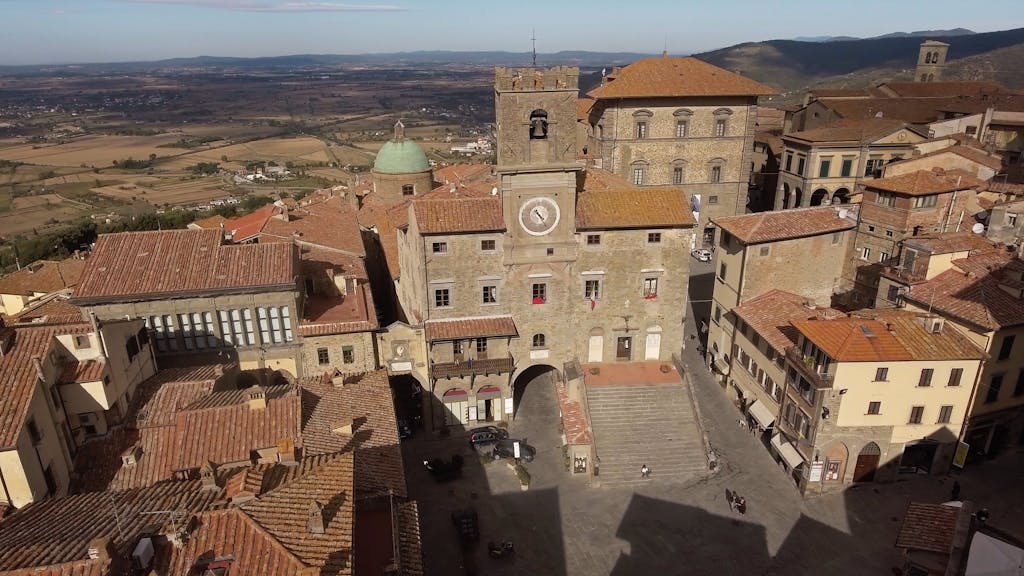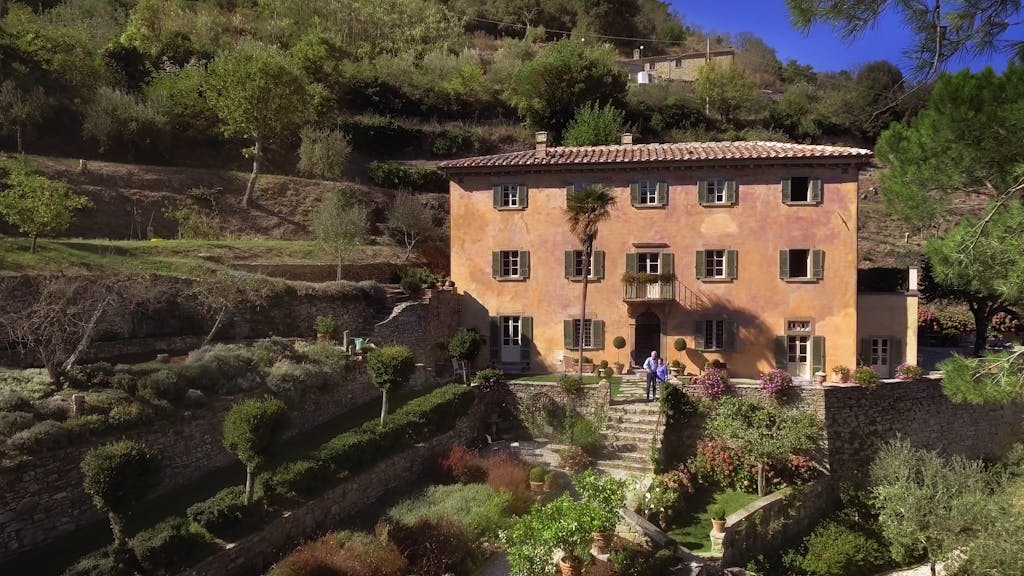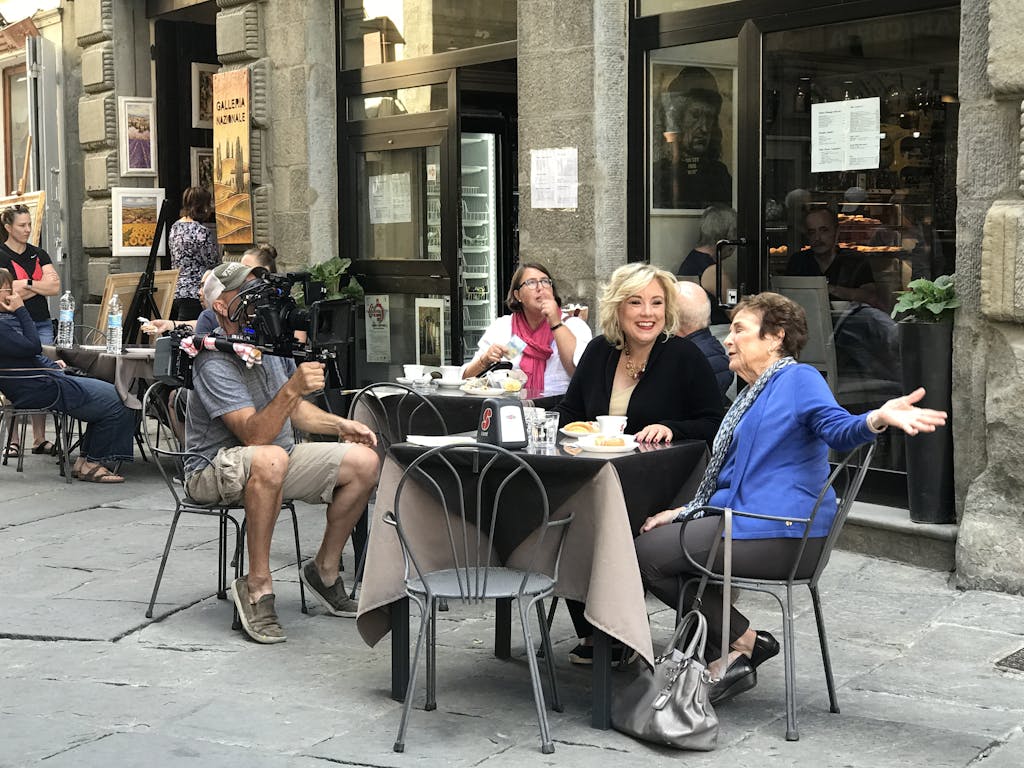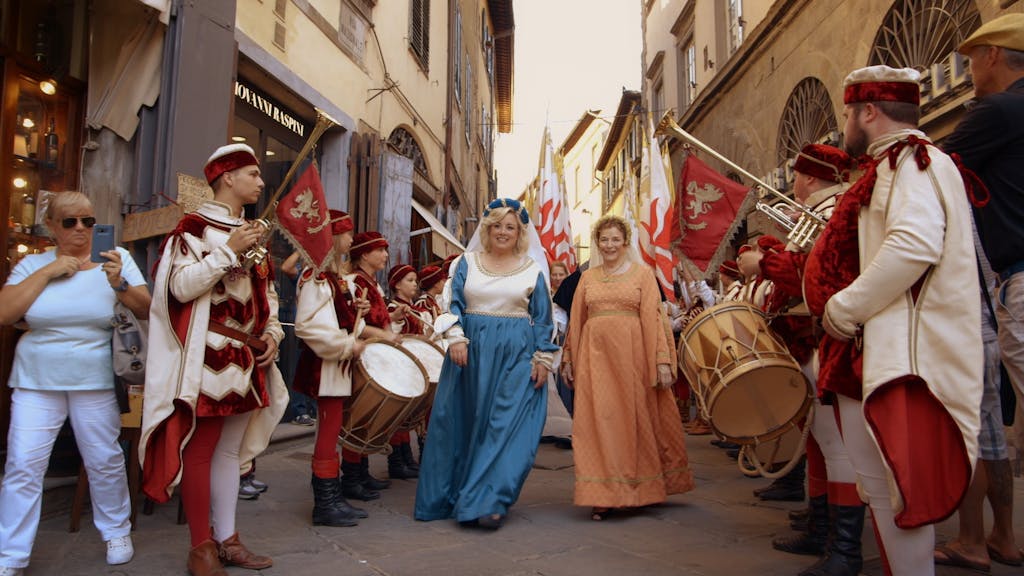Dreaming of Italy: The Life-Changing Stories of Kathy McCabe and Frances Mayes
Falling in love with a Tuscan villa in a serious state of disrepair transformed Frances Mayes’ life and career. Her tale of restoring Bramasole, in Cortona, is at the heart of Under the Tuscan Sun, her bestselling memoir and the film of the same name. Diane Lane played Mayes in the big screen version. She’s gone on to write eight more books about Italy, including Always Italy. Her latest novel, A Great Marriage, was recently published.
Kathy McCabe also had a dream of Italy. As founder and editor of Dream of Italy, a travel magazine she has published since 2002, she shares the discoveries and delights of a country that feels more like home than home. (When she’s not in Italy, McCabe lives in Denver.) More recently, Kathy created the television series Dream of Italy for PBS, now in its third season. She also hosts a podcast of the same name. A new special, Dream of Italy: Travel, Transform and Thrive, which includes Mayes, premiered on PBS in June 2021.
In addition to being good friends, Frances and Kathy are both Americans who had felt the lure of Italy—in different ways—and undertook ambitious projects that changed them from being occasional tourists to more firmly rooted in the place they both love.
In an exclusive conversation with Silversea’s Carolyn Spencer Brown, they share their insights.
A PLACE TO BE YOURSELF

Kathy McCabe: What drew me to Italy? There are so many answers to that. What stands out are the people, their warmth, the connection. As Frances says, the piazza is the living room of Italian life. A friend told me, “You’re more you when you’re in Italy. You’re like the best version of yourself.” Yes.
Frances Mayes: Every day in Italy turns my world around, but I have a very different, old connection with Italy. Kathy’s is very personal, very deep. Mine is that I had studied Renaissance art and medieval art and architecture and all these art history courses. And I simply wanted to go to Italy to see Piero Della Francesca and all the painters. I wanted to see all the buildings that I’d only seen on screens in art history classes.
KM: Frances, that wasn’t the only motivation, was it?
FM: No. Ultimately, I trace it back to this one moment. I’d gone for the art, and the very first day I was there, I was in Bologna with my husband and we were sitting under those beautiful arcades where everyone in town gathers every morning for coffee. They were just having a fine time. With wonder, I said: ‘These people are having more fun than we are.’ And that was the transformative moment.

Looking back, it was that first realization of the vivacity of Italian life. And it was a realization that these people aren’t like us, they’re different. And then the interest grew. Who are they? How did they get to be that way? What is it about this place that makes them that way?
KM: When I first went to Italy it felt like being right back in my Italian-American grandparents’ living room. Italy takes me back to my childhood. And I think that feeling—of going back to myself— is a good way to put it.
FM: Yes, strange how someplace new can feel like an old connection. Italy reminds me so much of living in America’s South. There’s a sense of hospitality and community, kind of a familial feel. Kathy, I think feeling more you is something having to do with finding more of a sense of possibility, more sense of freedom in your day.
A DIFFERENT SENSE OF TIME

FM: I find that a lot of travelers come to Italy with certain expectations. Yet, once they get there, they find something different. They start to feel the place as it changes them. What brings that out is daily life in Italy. Not seeing the great sites, but just living the daily life. You begin to be imbued with this very different sense of time, for one thing. And it’s somehow because the Italians have so much time, you feel more at home in time, and they’re not up against time quite the way we are. So I think that being more you is something having to do with more of a sense of possibility. More sense of freedom in your day.
We all have 24 hours, but in Italy time is special. One of the reasons is that, especially in rural places, Italians still recognize that pause in the middle of the day. That’s what stretches the day, because you’re up early, you open your shop, and at 1 p.m. you’re out of there. So you’ve got a piece of the best part of the day to yourself, to do what you want—cooking, making love, gardening, resting. You go back to work at about 4 p.m. and end with a long dinner. And that pause, to me, is really one of the keys to the joys of Italian life.
KM: There’s another aspect about Italy that is magic. Visitors try to plan. I say, leave time for serendipity. You never know what’s going to happen.
FM: There’s no such thing as a stranger in Italy. If you have a flat tire on a country road, you might end up having lunch. It’s the people, it always comes down to people. I went there for the art and the literature and the cuisine and so forth. But I know that I’ve stayed there because of the warmth and humanism of local people.
DREAMING IN ITALIAN

KM: I love to tell people that ‘Italy is the answer to everything.’ Not everyone with a dream is going to buy a battered ancient villa, restore it to life, and write bestselling books about life in Tuscany and beyond. And not everyone is going to host TV shows or make magazines about it. But Italy gives people the permission to say, ‘I have a dream also and I can do it.’
You don’t have to go to Italy and do anything in particular. You just have to be there. Italy is the way to look ahead to a gentler life, a more meaningful life, one of simple pleasures. It is the antidote for the way we have been living. A woman I talked to in Le Marche created her own bed and breakfast inn. One of her guests went home and started a haberdashery and told her that if she could make her dream come true, he could too.
FM: Exactly, exactly. I’ve had hundreds of people write to me and say, I read your book and I bought a blue bicycle. I read your book and I got a divorce. It’s that sense of change that I think really appeals to people. You just have to remember the motto Andiamo, let’s go, and travel with occhi aperti, (eyes wide open). And good things happen.
